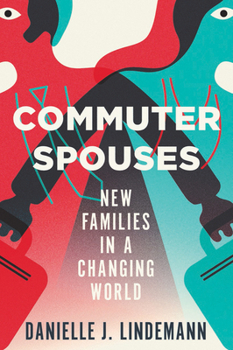Commuter Spouses: New Families in a Changing World
What can we learn from looking at married partners who live apart? In Commuter Spouses, Danielle Lindemann explores how couples cope when they live apart to meet the demands of their dual professional careers. Based on the personal stories of almost one-hundred commuter spouses, Lindemann shows how these atypical relationships embody (and sometimes disrupt ) gendered constructions of marriage in the United States. These narratives of couples who physically separate to maintain their professional lives reveal the ways in which traditional dynamics within a marriage are highlighted even as they are turned on their heads. Commuter Spouses follows the journeys of these couples as they adapt to change and shed light on the durability of some cultural ideals, all while working to maintain intimacy in a non-normative relationship.
Lindemann suggests that everything we know about marriage, and relationships in general, promotes the idea that couples are focusing more and more on their individual and personal betterment and less on their marriage. Commuter spouses, she argues, might be expected to exemplify in an extreme manner that kind of self-prioritization. Yet, as this book details, commuter spouses actually maintain a strong commitment to their marriage. These partners illustrate the stickiness of traditional marriage ideals while simultaneously subverting expectations.





